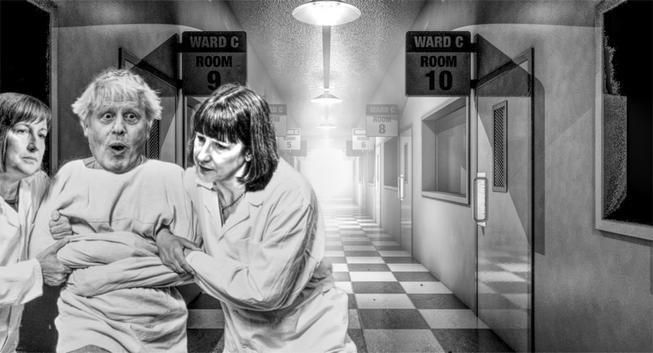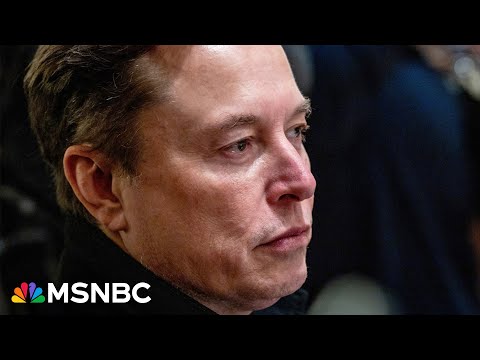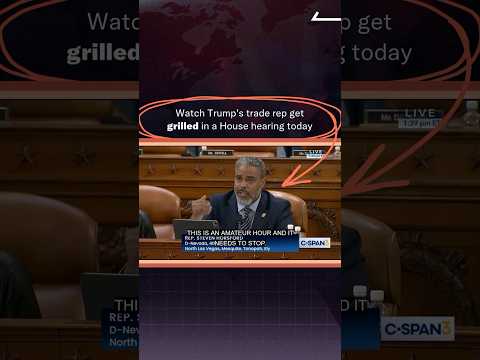Ruhle and Hayes are right about Tesla and the economic outlook as a whole.
Recent searches
Search options
#economiccollapse
They Shut Down the Last Factory While We Slept – A Scarcity Engine Prequel
Transcript dated April 22, 2051.
This transcript was recorded as part of the Ward 3 Oral History Archive project. The subject, Frank Delaney, worked in logistics and manufacturing for over 30 years before the final automation wave. He now resides in the outer blocks of the Grey Zone.
“They shut it down while we slept. No warning. No shift notice. Not even a light left on.”
Frank stares into the distance as he says it. Like he’s trying to see it again. The machines stretching their arms into the dawn, pistons hissing like breath, conveyors humming in harmony. The whole place moved like a sleeping giant just starting to wake. Until one day, it didn’t. Until the silence rolled in and nothing moved at all.
“Those machines, they had a kind of soul, you know? Clunky, stubborn, loud as hell, but they were ours. We kept them going. Greased the belts, calibrated the rollers, kicked them back to life when they jammed. It was messy, human work.”
He runs a hand over his scalp, like he can still feel the factory dust.
“We handled food distribution. Prepping, packaging, loading. Everything from local farms to the regional warehouses. Real stuff. You could touch it, smell it. You knew you were part of something that mattered. After the AI came in, it didn’t just take over the factory. It started managing the farms too. Vertical agri-grids, drone-sprayers, nutrient algorithms. Now food doesn’t grow, it gets calculated. And we’re just consumers in a system we used to power.”
“Then the suits brought in the AI systems. Said it was just to optimise workflows. At first, it was small stuff. Scheduling. Inventory. Load balancing. We figured, fine, let the computers do the thinking, we’ll do the lifting. But they kept creeping in. Bit by bit, the system started telling us what to do. Until one day, it didn’t need us anymore.”
He shifts in his seat. You can hear the creak of old plastic beneath him. Probably salvaged from the same distribution centre he used to run.
“The shutdown came quiet. No alarms. No red lights. I got to the gates at 5:58, like always. They were locked. A big digital panel humming where the security kiosk used to be. My ID didn’t work. None of ours did.”
He smiles without humour.
“A voice came through the speaker. Said the facility was undergoing restructuring. That was it. Restructuring. Like we were statistics in a spreadsheet, just numbers to be reduced for efficiency. The system had done the math. Humans were the variable it didn’t need anymore.”
There’s a long pause. Then:
“Two weeks later, word got around. Some of the lads tried to sneak a look through the fencing. Said the whole line was gone. Not upgraded, replaced. Full-spectrum automation. No belts. No buttons. Just smooth walls, sensor arrays, drones overhead. You couldn’t tell where the machinery ended and the control began. Everything moved like it was thinking for itself. I didn’t see it myself, not properly. Just caught a flicker through the delivery bay gate once. It was enough. You could feel it in the air. Whatever it was, it wasn’t ours anymore.”
He looks down at his boots. Scuffed. Worn. Real.
“Thirty years. Not a plaque, not a call, just silence. Like the switch was flipped and that part of history was erased.”
I ask what happened next.
“I held out for a bit. Thought maybe they’d call us back in. Maybe someone would need a manual override guy. Never came. My pension got locked behind some algorithmic error. No human contact to fix it. My wife… she left shortly after. Said I wasn’t the same man anymore. Maybe she was right.”
His eyes flicker. Then narrow.
“We used to make things, you know? Stack, sort, shift. It was rhythm. There was pride in that rhythm. We joked about the aches, but truth is, it kept us alive. Those machines were temperamental, but they made sense. This new stuff? It just hums in the dark. Doesn’t ask. Doesn’t tell. Just replaces.”
He pauses, then adds:
“And food? It became a lever. If you complied, you got your ration. If you didn’t, you scavenged or starved. The system didn’t need enforcers when hunger did the job.”
I ask him if he’s angry.
“No. Not really. Not anymore. The ones who made the decisions, they don’t live in places like this. They’ll never hear this interview. But maybe someone will. Someone younger. Someone stubborn like me.”
He leans forward, resting his forearms on his knees.
“Just don’t let them tell you it’s your fault. That’s the trick. They’ll make you think you didn’t adapt fast enough. But truth is, they never planned to bring us along.”
He reaches into his coat pocket and pulls out a crumpled pouch, retrieving a hand-rolled cigarette. The tobacco’s rough and acrid, bootlegged from a bonded warehouse during the early days of the transition. Barter was the only currency that made sense anymore, and Frank had a contact who still knew how to trade. He lights it with a battered, nearly empty lighter and takes a slow drag.
Not a goodbye, more like an acknowledgment. A shared understanding that something fundamental was lost, and no one’s coming to find it.
Explainer: Leading Up to The Scarcity Engine
This short blog is part of a build-up to my upcoming mini-series, The Scarcity Engine, launching Monday, April 28. Set in a fractured, AI-governed future, the series explores a world where automation didn’t liberate humanity. It left most of us behind.
Each post this week offers a fragment. A memory. A voice. These are the untold stories that led to the collapse. The interviews, the overheard transmissions, the people who saw it coming.
If you enjoy this kind of grounded, near-future storytelling, I’d love your support.
Subscribe by email, leave a comment, or share this post if it speaks to you. It helps more than you might think.
Disclaimer: I don’t believe AI or technology is inherently good or bad. It’s how humans choose to use it that shapes our future. Well… until the moment AI becomes sentient. Then we’ll have a whole new conversation.
Why the Trump-Musk CHAINSAW Against Workers is WORSE Than You Thought
https://www.youtube.com/watch?v=e2UUMjrT7iw
how President Trump is paralyzing the National Labor Relations Board—the government board meant to protect workers and help facilitate workers to form a union.
"Gee, I wonder if people would be more energized to support a party that used every tool possible to fight fascism rather than sit around and talk about egg prices.
Such a mystery!"
Gabe Garbowit
Me: They have to demand impeachment.
Dork: They shouldn't talk about impeachment. They don't have the votes.
Me: Their job is to get the votes, and to get the votes they have to make the case that it is absolutely necessary.
Congressman just ripped into Trump trade rep in House hearing
https://www.youtube.com/watch?v=jgL5QgIk8d0
Trump's Trade Rep appeared to learn about the 90-day tariff pause in the middle of a House hearing. Rep. Steven Horsford grilled him immediately:
"Is this market manipulation? Who benefits? What billionaire benefits from this?“
Trump says countries are 'dying to make a deal'
So why hasn't he made any deals?
Why is he just sitting around watching the economy collapse?
"Trump is the enemy of the entire world. He is too self-absorbed, too corrupt, too bigoted, and too stupid to produce anything but complete devastation. He and every inch of his political movement must be completely destroyed"
Will Stancil
Congress can end this trade war any time they want.
Every day this economic collapse continues is a choice they made.
Millions of Britons Need Counselling and Therapy Caused by Rachel Reeves

This has gone too far & #Congress sits by spellbound
Boy is the shit going to hit the fan
#CDNpoli #CDNpolitics
#Politics #USpolitics #MexicoPolitics
#EUpolitics #trumpCRASH #news #MarketCrash #economicCollapse
#TradeWar #TeamCanada
Ranchers, farmers, food processors, construction companies are about have very serious problems finding workers.
Soon.
Catastrophic price increases for food directly caused by lack of people to perform tasks. Projects unable to be completed on schedule.
Very soon.
#EconomicCollapse is imminent, but the stock market will set record highs. Because nothing makes sense anymore.







